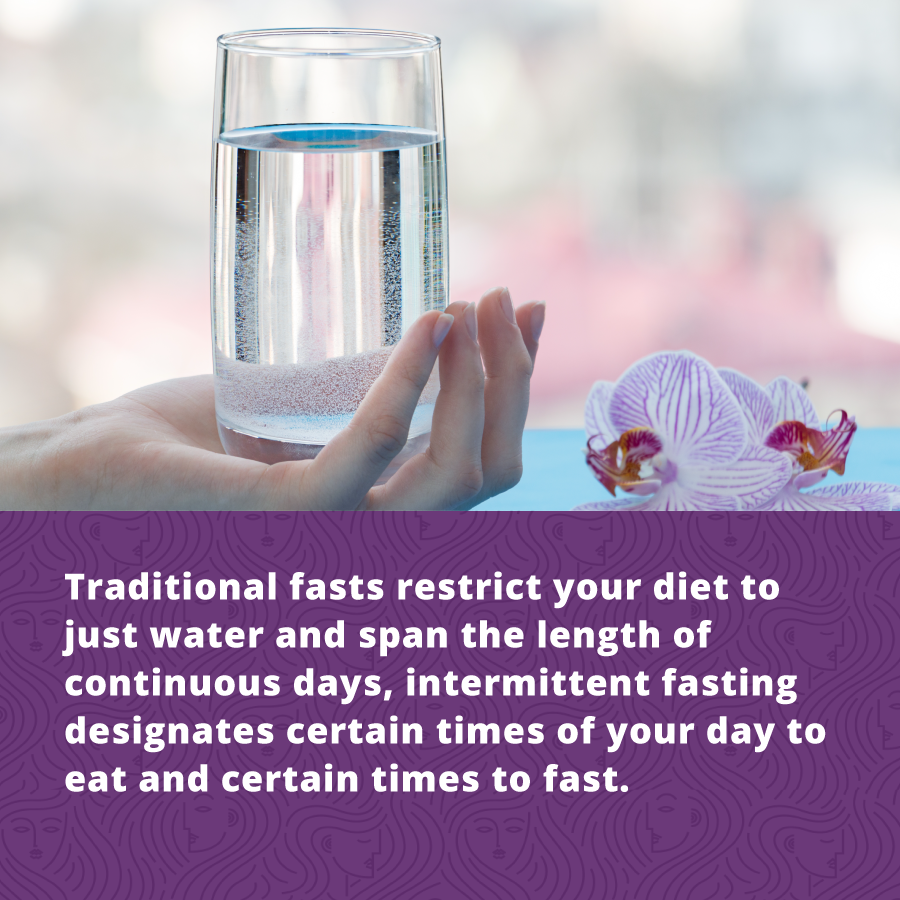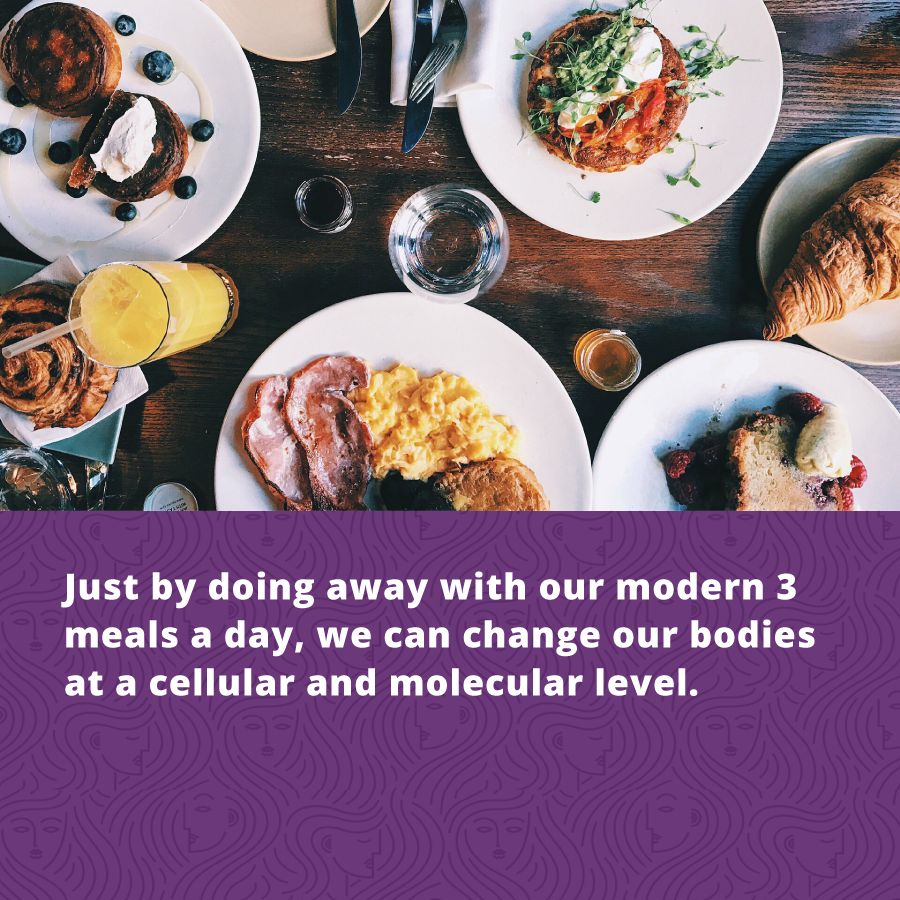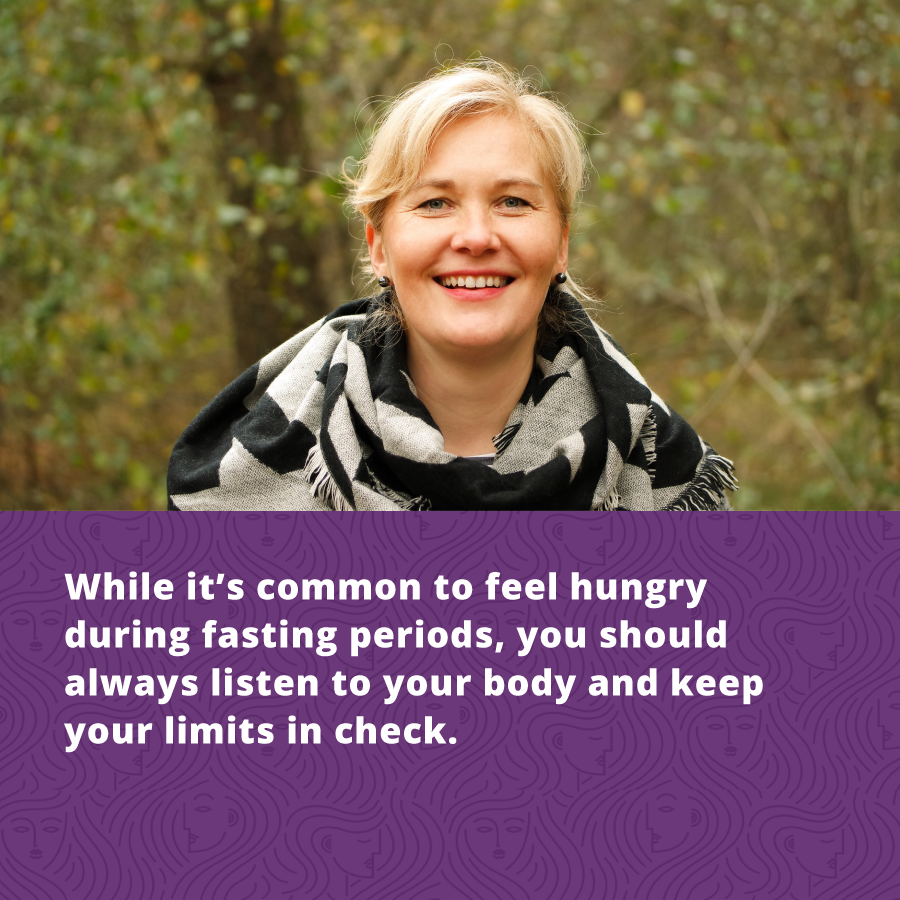Intermittent Fasting for a Healthier Brain and Body – A Beginner’s Guide to Holistic Health for Women
Intermittent fasting might seem like the newest buzzword or fad in the health and wellness space, but it has the history and scientific evidence to back it up. Fasting as a religious and spiritual practice has been around for centuries. Fasts could span a day or even a couple of weeks, with the longest fasting period clocking in at 382 days. Many people view fasting as a diet, but rather than managing what you eat, it actually manages when you eat. Now we are learning that intermittent fasting, a schedule that manages when you eat, is a much healthier and practical alternative to traditional fasts. Not only can it help with weight loss, but it is also a part of holistic health for women and men that has powerful benefits for your brain and overall lifestyle.

Intermittent Fasting – A Part of Holistic Health for Women
As we hinted at above, intermittent fasting (IF) is not a diet – it’s a schedule. Traditional fasts restrict your diet to just water and span the length of continuous days, intermittent fasting designates certain times of your day to eat and certain times to fast. One example is the 16:8 IF in which you eat between 1-9 PM and fast for the remaining 16 hours of the day.
This might seem like a new concept, but the reality is that fasting is hardwired into our biology. As hunter-gatherers, humans had to span hours and even days at a time without food. In present-day America, many of us have a global variety of foods at our fingertips at all hours of the day – there’s a convenience store on almost every block, the break room is always stocked with snacks, grocery stores are plentiful, and we can even have someone hand-deliver food to wherever we are at any time of the day. Our ancestors didn’t always have it this easy, and a successful hunt could make the difference between having something to eat that day or not. Humans have evolved to function without foot – intermittent fasting mimics that.
There are many different types of fasts, but there are three umbrella categories:
Alternate-day fasting: This involves eating a healthy diet one day, then either going without eating or restricting your caloric intake to 500 calories the next day.
5:2 fasting: This is a weekly ratio of eating to fasting, so eating normally for 5 days, then fasting for two. The two fast days do not have to be consecutive.
Daily time-restricted fasting: This is by far the most common method of fasting. In time-restricted fasts, you eat normally within a strict time window and go the rest of the time without food. Common fasting to eating ratios include the 14:10 and the most common, 16:8.

Just by doing away with our modern 3 meals a day, we can change our bodies at a cellular and molecular level.
When we restrict our eating windows, our bodies react by:
- Increasing Human Growth Hormone Levels: this is beneficial for muscle gain and fat loss
- Altering genes: Yes, your gene expression can also be altered by intermittent fasts! It can help you to better protect yourself against disease while also promoting longevity.
- Improving Insulin Sensitivity: Not only does intermittent fasting help to reduce levels of insulin, but it can also improve our insulin sensitivity, lowering your risk of diabetes.
- Induces Autophagy: Autophagy is the process in which our bodies get rid of cellular waste, such as old and damaged cells or proteins, and fasting has been found to trigger this response.
All of this is great! It’s evidence of what happens to your body on a cellular level, but it can be hard to understand how that translates on a day to day level.
Benefits of Intermittent Fasting
Intermittent fasting contributes to holistic health for women by adopting a healthier lifestyle. The most common reason that women pick up intermittent fasting is for weight loss, but it can do so much more for your overall health! It may even help you to live longer. Here are some of the paramount benefits IF can deliver for your health:
- Weight loss: Rather than calorie counting, many women find intermittent fasting to be a more sustainable and easier to adopt method of caloric restriction. Not only are you cutting calories, lowering your insulin increases the release of norepinephrine which burns fat. Some studies found that IF might help to boost your metabolic rate as well. What we know for certain is that continuing the IF eating pattern can cause 3–8% weight loss, as proven by a 2014 study.
- Improve brain health: Intermittent fasting increases the hormone BDNF. This has many good-for-your-brain benefits including increasing brain plasticity, growing new nerve cells, and protecting against neurodegenerative disorders such as Alzheimer’s disease.
- Prevent type 2 diabetes: Better insulin management can reduce blood sugar levels by 3-6% while retaining insulin for longer, which helps to prevent type 2 diabetes.
- Reduce inflammation: Inflammation can lead to a whole host of diseases. However, studies have shown that intermittent fasting reduces inflammation. You can also boost these benefits by sticking to an anti-inflammatory diet!
- Boost heart health: Intermittent fasting supports your heart by lowering LDL cholesterol. This, paired with its anti-inflammatory benefits and insulin management, all support a happy, healthy heart!
- Lengthen life spans: Though conclusive studies have yet to be done on the human lifespan, studies showed that rats who have fasted lived 36–83% longer. The above benefits also contribute to a longer, healthier life.

Is IF Right for Me?
Despite all its benefits, intermittent fasting shouldn’t be included in every plan for holistic health for women. When done correctly, intermittent fasting can help support long term health goals and weight loss, but it can accelerate to unsafe levels very quickly. If you have struggled with eating disorders in the past, it’s best to avoid intermittent fasting. While it’s common to feel hungry during fasting periods, you should always listen to your body and keep your limits in check. Some women found that intermittent fasting altered or stopped their menstrual cycles or left them feeling fatigued. For this reason, intermittent fasting is not a good choice for pregnant women or women struggling with infertility. No matter your health history, you should ease into the practice to see how your body reacts and quit if you notice you’re missing periods or feeling unwell. Before you start setting your new IF schedule, make sure you consult your doctor to discuss all the options to get you on track with your health goals.

